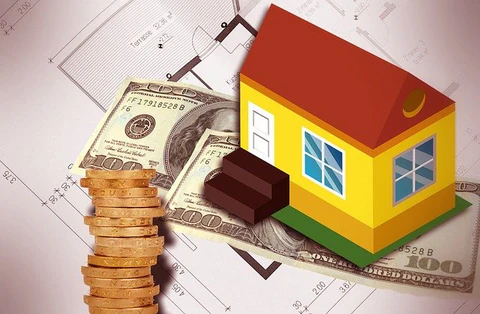Buying a home isn’t just a milestone—it's also a smart financial decision. While homeownership comes with expenses like mortgage payments and maintenance, it also brings valuable tax advantages that can save you money every year.
Let’s break down the major tax benefits of owning a home, how they work, and how you can make the most of them.
🧾 1. Mortgage Interest Deduction
One of the most well-known tax perks for homeowners is the mortgage interest deduction.
How it works:
If you itemize deductions on your tax return, you can deduct the interest paid on a mortgage of up to $750,000 (for loans taken after December 15, 2017). If your loan is older, the limit may be up to $1 million.
📌 Example: If you paid $9,000 in mortgage interest in a year, you can subtract that from your taxable income. This lowers the amount of taxes you owe.
Why it matters: It significantly reduces your taxable income, especially in the first years of your loan when interest payments are higher.
🧾 2. Property Tax Deduction
As a homeowner, you likely pay property taxes to your local government. The good news? Those taxes are also deductible.
Limitations:
You can deduct up to $10,000 ($5,000 if married filing separately) in combined state and local taxes (SALT), which includes property taxes and either income or sales taxes.
Tip: Keep records of your property tax payments—usually found on your mortgage statements or annual tax bill.
🧾 3. Mortgage Insurance Premiums
If you put down less than 20% on your home, you probably pay private mortgage insurance (PMI). This cost might feel like a burden, but there's relief available.
The benefit:
PMI premiums can be deducted if your adjusted gross income (AGI) is under a certain threshold (currently phased out after $100,000 for individuals and $200,000 for joint filers).
Good to know: Congress has extended this deduction multiple times, so check if it's still available the year you file.
🧾 4. Capital Gains Exclusion
When it comes time to sell your home, the capital gains exclusion can save you thousands.
Here’s how:
If you’ve lived in your home for at least 2 of the last 5 years, you can exclude up to:
$250,000 of profit (single filer)
$500,000 (married filing jointly)
from capital gains tax.
📌 Example: You bought your home for $300,000 and sell it for $600,000. If you qualify, you won’t pay tax on the $300,000 profit (if you're married filing jointly).
🧾 5. Home Office Deduction (for Self-Employed)
Do you run a business or freelance from home? You might be able to deduct part of your home expenses under the home office deduction.
Eligibility:
Must use part of your home exclusively and regularly for business.
Only available for self-employed individuals (not W-2 employees, due to the 2017 tax law changes).
What can be deducted:
A portion of your rent or mortgage
Utilities
Insurance
Repairs to the space
Use the simplified method (based on square footage) or the actual expense method to calculate your deduction.
🧾 6. Energy-Efficient Home Improvement Credits
Going green? The IRS rewards you for making your home more energy-efficient.
What qualifies:
Solar panels
Energy-efficient windows, doors, insulation
HVAC systems
You may be eligible for a nonrefundable tax credit—a percentage of the improvement cost, often up to 30%.
🧾 7. Points Deduction
When you buy a home, you might pay points to get a better mortgage rate. These points are prepaid interest, and the IRS often lets you deduct them in the year you paid.
In some cases—like refinancing—you may need to deduct them over the life of the loan.
📝 Final Thoughts
Owning a home doesn’t just give you a place to live—it’s a strategic investment with multiple tax breaks.
Important Link
Jalan Loyang Besar EC Developer
Jalan Loyang Besar EC Project Details
New Condo Projects with High Connectivity to Business Districts
Key Factors That Affect Condo Resale Value in Singapore
What Makes a Condo a Smart Long-Term Investment in Singapore
Jalan Loyang Besar EC Site Plan
Jalan Loyang Besar EC Floor Plans
Jalan Loyang Besar EC Showflat

